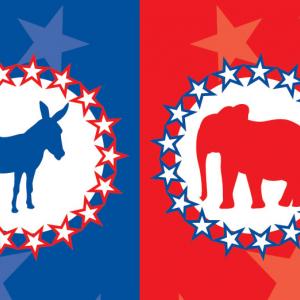
Sungyak "John" Kim is an MDiv student of theology at Reformed Theological Seminary in Orlando, Fla. He is currently investigating the intersection between philosophy and theology, and their practical applications in our culture and politics. You can follow him on Twitter @sungyak.
Posts By This Author
Letter to a Kingdom Citizen
A common sentiment that’s expressed by both the left and the right on the issue of immigration reform is that immigrants need to prove their faithful adherence to the law and contribution to society before they’re put on some path to citizenship. It's redemption by works. It’s a reasonable means to verify their willingness to contribute to society. But a disconcerting irony dawned on me amid all this mutual give-and-take language we hear about immigrants; that is, many citizens themselves do not heed the same exhortation to contribute to their country today.
This is encouraged by the fact that citizenship today is identified entirely by a piece of paper, not by a way of life — by ink, not by deed. Although one’s citizenship technically includes a whole list of rights and duties, the fulfillment of these rights and duties is not a part of the identification process. This is understandable, as it’s very difficult to tell whether someone is trying to contribute to the state or merely trying to get what they can out of their legal privileges. I'm not out to start a Civil Reformation or something. But these thoughts have reminded me that the standard the Bible sets for Christian citizenship in heaven is something else entirely.
New Calvinists today have hammered home the doctrine of justification by faith through grace, not by works or legalistic moralism. Kingdom citizenship is claimed by faith in Christ. Got it.
Yet, Scripture is emphatic that Kingdom citizenship is not identified by faith alone, but also by works.
Nietzsche Dissects American Political Discourse
What if I told you that the political discourse in America has proven for decades what PSY’s ‘Gangnam Style’ phenomenon has proven recently? What do I mean? It is simply this: people can indeed get tirelessly excited about something that sounds good without understanding its contents.
Like every election year, 2012 seems to have its own particular set of buzzwords and slogans. From “the forgotten 47 percent” to “you did build that,” those on the left and the right are each trying to infuse the political discourse with their own partisan lingo. But it’s time somebody put a stop to the hype and asks the sensible question: “What is the real meaning behind all of this?”
Truth is, both political parties have been directing their resources to highlight their differences more than anything else. They are platforms defined by contrast, not by real facts. This should lead us to raise the question that is usually unasked (and therefore unanswered) amid the consistent heat of the American political climate: “If the government is designed ultimately for the good of the people, is the political discourse today reflective of that goal?”
To this question, the German philosopher Friedrich Nietzsche answers, “No.”

